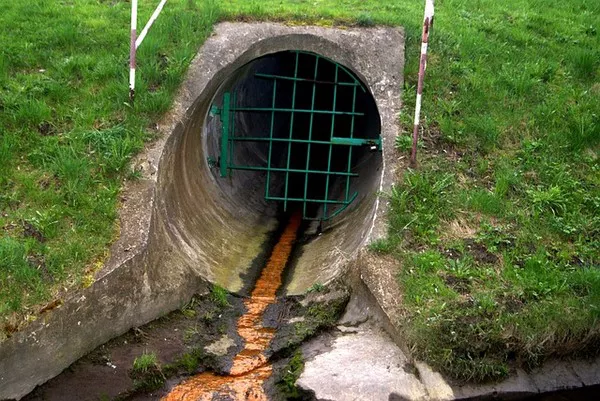Wastewater treatment is a crucial aspect of modern environmental management. As urbanization and industrial activities increase, so does the volume of wastewater generated. This article explores the compelling reasons for treating wastewater, including its environmental, health, and economic implications. Understanding the necessity of wastewater treatment is essential for ensuring sustainable development and protecting our natural resources.
Understanding Wastewater
1. Definition of Wastewater
Wastewater refers to any water that has been adversely affected in quality by anthropogenic influences. It encompasses various types of water, including domestic sewage, industrial effluents, agricultural runoff, and stormwater. Understanding the composition of wastewater is essential for determining the appropriate treatment methods.
2. Sources of Wastewater
Domestic Sources: Household activities such as bathing, cooking, and flushing toilets generate a significant amount of wastewater.
Industrial Sources: Factories and manufacturing processes produce wastewater containing chemicals, heavy metals, and other pollutants.
Agricultural Sources: Fertilizers, pesticides, and animal waste from agricultural practices contribute to wastewater pollution.
Stormwater: Rainwater runoff can pick up pollutants from streets, buildings, and landscapes, leading to contaminated water entering waterways.
Environmental Impacts of Untreated Wastewater
1. Pollution of Water Bodies
When wastewater is discharged untreated into rivers, lakes, and oceans, it introduces harmful pollutants that degrade water quality. This can lead to:
Eutrophication: Excess nutrients, particularly nitrogen and phosphorus, can cause algal blooms, depleting oxygen levels and harming aquatic life.
Toxicity to Aquatic Life: Heavy metals and chemicals in untreated wastewater can be toxic to fish and other aquatic organisms, disrupting ecosystems.
2. Groundwater Contamination
Untreated wastewater can infiltrate the soil and contaminate groundwater sources. This poses significant risks to drinking water supplies, leading to health issues for communities reliant on groundwater.
3. Soil Degradation
When wastewater is not properly treated, it can lead to soil contamination, negatively impacting agriculture and natural vegetation. Pollutants can accumulate in the soil, affecting crop growth and food safety.
Health Risks Associated with Untreated Wastewater
1. Waterborne Diseases
Improperly managed wastewater can serve as a breeding ground for pathogens, leading to waterborne diseases. Common illnesses associated with contaminated water include:
Cholera
Typhoid Fever
Hepatitis A
These diseases pose significant public health risks, especially in developing regions with inadequate sanitation facilities.
2. Chemical Exposure
Industrial wastewater may contain harmful chemicals and heavy metals that can adversely affect human health. Chronic exposure to these substances can lead to serious health issues, including:
Cancer
Neurological Disorders
Reproductive Health Problems
3. Impact on Vulnerable Populations
Low-income communities often bear the brunt of untreated wastewater issues. Limited access to clean water and sanitation increases their susceptibility to health risks associated with contaminated water sources.
Economic Benefits of Wastewater Treatment
1. Cost Savings
Investing in wastewater treatment can lead to significant cost savings in the long run. By preventing pollution, communities can reduce the expenses associated with cleaning up contaminated water sources, healthcare costs related to waterborne diseases, and damage to ecosystems.
2. Resource Recovery
Modern wastewater treatment technologies enable the recovery of valuable resources, including:
Water: Treated wastewater can be reused for irrigation, industrial processes, or even as potable water through advanced treatment methods.
Nutrients: Nutrients recovered from wastewater can be used as fertilizers, promoting sustainable agricultural practices.
Energy: Biogas produced during wastewater treatment can be harnessed as a renewable energy source.
3. Job Creation
The wastewater treatment sector provides employment opportunities in engineering, construction, operations, and maintenance. As the demand for clean water increases, so does the need for skilled professionals in this field.
Regulatory Framework and Standards
1. Global Efforts
Various international organizations and treaties emphasize the importance of wastewater treatment. Initiatives like the United Nations Sustainable Development Goals (SDGs) highlight the need for clean water and sanitation for all.
2. National Regulations
Many countries have established regulations governing wastewater discharge and treatment standards. These regulations are designed to protect public health and the environment, ensuring that wastewater is treated before being released into the ecosystem.
Advances in Wastewater Treatment Technologies
1. Conventional Treatment Methods
Primary Treatment: This process involves physical methods to remove solids from wastewater, such as sedimentation and filtration.
Secondary Treatment: Biological processes are employed to degrade organic matter, typically using microorganisms in aeration tanks or biofilters.
Tertiary Treatment: Advanced filtration and chemical processes are used to remove remaining contaminants, making the water suitable for reuse.
2. Innovative Approaches
Emerging technologies are revolutionizing wastewater treatment:
Membrane Bioreactors (MBR): These systems combine biological treatment with membrane filtration, producing high-quality effluent suitable for reuse.
Constructed Wetlands: Natural processes are utilized to treat wastewater, mimicking the filtration and nutrient uptake of wetland ecosystems.
Anaerobic Digestion: This process converts organic waste into biogas, providing a renewable energy source while treating wastewater.
Challenges in Wastewater Treatment
1. Infrastructure Investment
Upgrading and maintaining wastewater treatment facilities require significant investment. Many regions struggle with aging infrastructure and lack the funds necessary for modernization.
2. Public Awareness and Engagement
Raising awareness about the importance of wastewater treatment is crucial for community engagement. Public support is essential for implementing effective wastewater management strategies.
3. Climate Change Impacts
Climate change poses challenges for wastewater treatment, including increased rainfall leading to more significant stormwater runoff and the potential for flooding. Treatment facilities must adapt to these changing conditions to remain effective.
Conclusion
Treating wastewater is a vital necessity for protecting public health, preserving the environment, and promoting sustainable economic development. By understanding the importance of wastewater treatment and investing in modern technologies, communities can ensure a cleaner, healthier future for generations to come. The integration of innovative treatment methods, regulatory frameworks, and public engagement will play a crucial role in advancing wastewater management practices worldwide.
Related topics:

